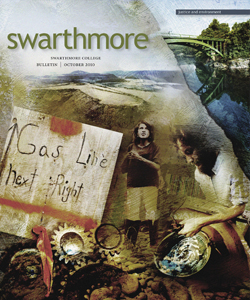Looking Glass Land
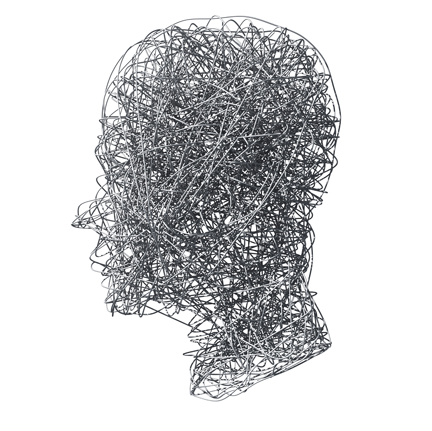 Susan Inman ’71, After Her Brain Broke: Helping My Daughter Recover Her Sanity, Bridgeross Communications, 2010
Susan Inman ’71, After Her Brain Broke: Helping My Daughter Recover Her Sanity, Bridgeross Communications, 2010
A desperately ill child. A bewildering succession of symptoms, along with a shifting assortment of diagnoses. A seemingly endless series of trial-and-error treatments, which compound a degree of symptom relief with unwelcome and even dangerous side effects. This is the world of severe mental illness, a world that Susan Inman aptly terms “a ridiculous hell.” It is the world that Inman brings to life in her wrenching and courageous memoir of her family’s struggle to care for Molly, their teenager, who has developed a severe psychotic disorder.
Susan Inman’s experiences with the mental health system—like those of many patients and families—resemble the nightmarish world that Alice experiences when she steps through the mirror into Looking Glass Land. Unlike biomedical diagnoses, psychiatric diagnoses do not carve nature at its joints; they merely describe clusters of symptoms. Molly’s symptoms morph unpredictably through the nine years of illness that Inman charts. Inman encounters several therapists whose knowledge of psychotic illnesses is antiquated as well as a few whose notions of psychotherapy are downright flakey. The family also encounters a maze of bureaucratic regulations that limit their options and sometimes threaten Molly’s safety.
Inman’s account brings us face to face with the yawning chasm between what sufferers need and what is currently available. In Canada (Inman’s home), as in the United States, a cost-conscious health care system has relinquished its responsibility for care, leaving families to shoulder enormous financial, practical, and emotional burdens.
Inman’s memoir eloquently portrays the frustration, helplessness, and anger that engulf families as they attempt to navigate the fragmented and underfunded treatment system. But another story parallels the story of anger and disappointment: The story of a family’s arduous but ultimately successful efforts to secure competent and responsive psychiatric care and to locate (or create) community-based programs that will support Molly as she creates a life for herself outside her illness. Inman learns all she can about her daughter’s illness. She, her husband Peter Seixas ’69, and their elder daughter master the strategies and skills needed to work the system; they coax and cajole various agencies and social services (a GED program, special schools, and the local community college) into meeting Molly’s needs. And, although Molly has setbacks when her illness flares up, her progress is remarkable. She gains the capacity to stand outside her illness and learns how to manage it.
Susan Inman draws a picture of severe mental illness that strikes a balance between hope and realism. Like most parents of children with such illnesses, she has been the target of mother-blaming by some mental health professionals; others have been accusatory and distrustful. These practices are lingering residue of the psychoanalytic theories popular in the 1950s and 1960s. It is hardly surprising that Inman staunchly advocates for biomedical models of mental illnesses. Yet, as Molly’s experiences demonstrate, the manifestations of a mental illness are an intricate interplay of biochemical abnormalities, a person with a distinctive set of coping resources, and an interpersonal milieu that fosters recovery or impedes it.
In a poignant passage, Molly spots a homeless man huddled in a parking lot, rearranging the contents of his shopping cart. “Will I be getting a shopping cart?” she asks her mother with heartbreaking naïveté. “No,” Inman declares, “These are sick people who don’t have a family to help them.” Indeed, Molly’s family is the crucial factor in her recovery. Inman and her husband muster extraordinary energy and unflagging determination to bring Molly beyond her illness. Luckily, they have substantial social, cultural, and financial capital at their disposal. Inman simply refuses to be daunted, defeated, or thwarted by the myriad obstacles that confront her. As she obtains more and more knowledge, she gains the confidence to challenge Molly’s caregivers and even to resist treatment recommendations that seem askew. Ultimately, her efforts to restore her daughter’s health propel her into leadership positions in the local community of families coping with severe illness.
After Her Brain Broke is addressed primarily to families coping with mental illness. Inman laces the book with information about scientific research; she also includes appendices listing print and online resources for families. She tells about psychoeducation programs such as NAMI’s Family-to-Family and BRIDGES groups, in which peers offer one another empathic witnessing, material help, and practical measures to cope with quotidian difficulties. However, families facing severe mental illness are not the only ones who can benefit from reading After Her Brain Broke. For mental health professionals, the book offers needed, albeit humbling, lessons about what families need. For the rest of us, Susan Inman provides a compelling portrayal of the emotional maelstrom of severe mental illness.
—Jeanne Marecek
William R. Kenan Jr. Professor Emerita of Psychology
BOOKS

Freedom by Jonathan Franzen
Jonathan Franzen ’81, Freedom, Macmillan, 2010. Hailed as the “Great American Novelist” on the cover of Time magazine in August—the first living American novelist to grace the cover in a decade—Franzen has brought forth a new novel in which he charts his characters’ mistakes and joys as they struggle to live in an increasingly confusing world.
Suzanne Kirschner ’78 and Jack Martin (editors), The Sociocultural Turn in Psychology: The Contextual Emergence of Mind and Self, Columbia University Press, 2010. In this book, the authors address a variety of ways in which, in contemporary psychology, there has been a trend toward viewing both mind and self as fundamentally constituted by cultural context and human interaction.
Guian McKee ’92, The Problem of Jobs: Liberalism, Race, and Deindustrialization in Philadelphia, The University of Chicago Press, 2008. In this study, the author uncovers a forgotten history of postwar economic redevelopment policy, as he uses the City of Philadelphia as an example to show how a major industrial city coped with deindustrialization and disinvestment.
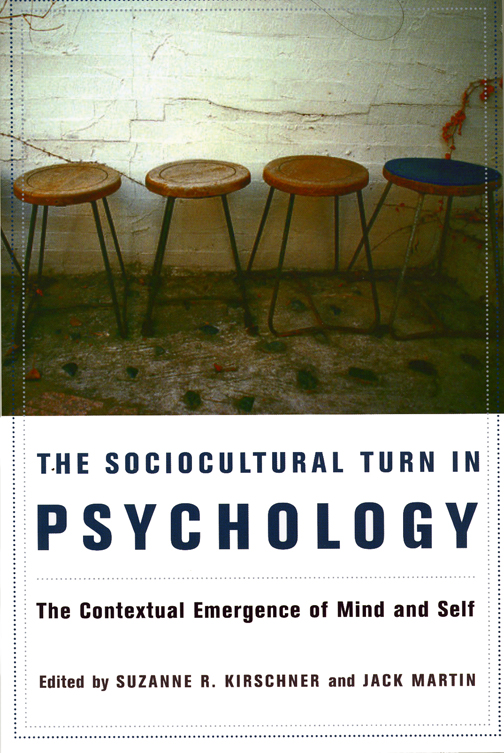
The Sociocultural Turn in Psychology: The Contextual Emergence of Mind and Self by Suzanne Kirschner ’78 and Jack Martin (editors)
Ellis Mottur ’52, A Poetic Journey—From Fear, Through Faith, To Love and Felicity, Dorrance Publishing, 2010. Mottur hopes that readers will find encouragement, insight, or inspiration in a series of poems that he says exemplify and elucidate his own passage through life. Professor of English Literature Nathalie Anderson says: “The poems collected here read like love notes to the world at large.”
Margery Post Abbott ’67, To Be Broken and Tender: A Quaker Theology for Today, Friends Bulletin Corporation, 2010. The author, a Friends and Quaker historian, weaves together a personal narrative with Quaker history and theological reflection in response to questions and struggles about belief, language, social issues, and other deeply felt concerns that unsettle and divide the Religious Society of Friends.
Karin Aguilar-San Juan ’84, Little Saigons: Staying Vietnamese in America, University of Minnesota Press, 2009. The author examines the contradictions of Vietnamese American community in two emblematic yet different locales, whose distinctive qualities challenge assumptions about identity and space, growth and globalization, and processes of Americanization.
Peter Andreas ’87 and Kelly M. Greenhill (editors), Sex, Drugs, and Body Counts: The Politics of Numbers in Global Crime and Conflict, Cornell University Press, 2010. Political scientists, anthropologists, sociologists, and policy analysts examine the murky origins of statistics related to the realms of global crime and conflict and trace their proliferation.
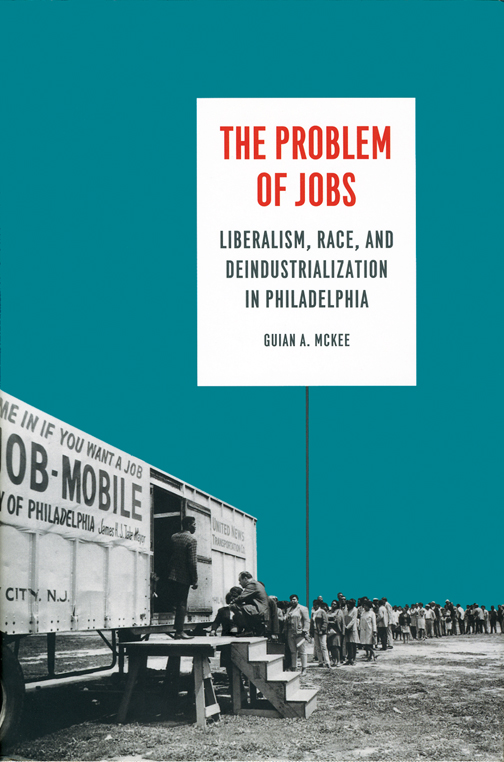
The Problem of Jobs: Liberalism, Race, and Deindustrialization in Philadelphia by Guian McKee ’92,
Cynthia Grant Bowman ’66, Dawn Clark Netsch: A Political Life, Northwestern University Press, 2010. This first biography of Netsch follows her political career from working as assistant to Illinois Governor Otto Kerner and as a participant in the 1970 Constitutional Convention to her later service in office—as Illinois state senator and later Illinois comptroller—culminating in her run for governor in 1994.
Unmarried Couples, Law, and Public Policy, Oxford University Press, 2010. Bowman explores the legal recognition of heterosexual cohabiting couples in the United States, whose numbers have increased at a phenomenal rate over the last few decades but to whose legal issues the law has not responded.
Jocelyn Roberts Davis ’84, Henry M. Frechette Jr., Edwin H. Boswell, Strategic Speed: Mobilize People, Accelerate Execution, Harvard Business Press, 2010. Using global research and in-depth case studies of diverse companies, the authors illustrate critical leadership practices that put strategic speed—implementing strategies quickly and well—in motion.
Matthew Guttmann and Catherine Lutz ’74, Breaking Ranks: Iraq Veterans Speak Out Against the War, University of California Press, 2010. This book brings a new and deeply personal perspective to the war in Iraq by looking into the lives of six veterans who turned against the war they helped to fight.
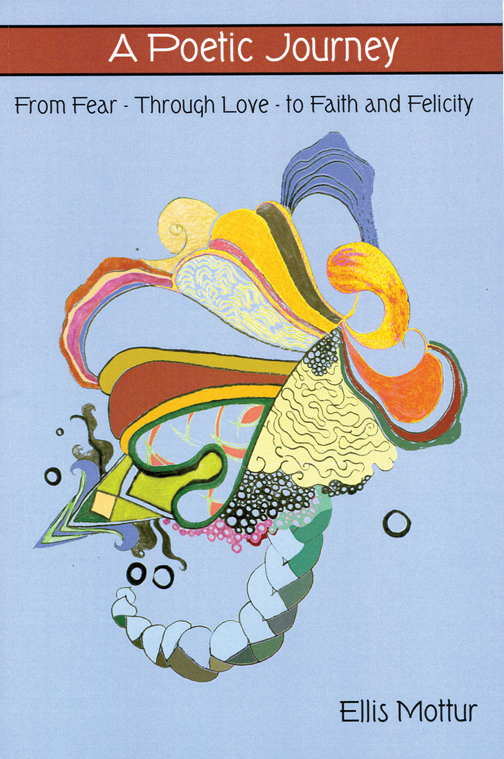
A Poetic Journey—From Fear, Through Faith, To Love and Felicity by Ellis Mottur ’52
Stephen Nathanson ’65, Terrorism and the Ethics of War, Cambridge University Press, 2010. Arguing that we cannot have morally credible views about terrorism alone and neglect broader issues about the ethics of war, the author challenges influential views on the ethics of war, including the realist view that morality does not apply to war and Michael Walzer’s defense of attacks on civilians in a “supreme emergency.”
OTHER MEDIA
Nelson Pavlosky ’07 and Brian Rose ’06 (The Wrong Side of Dawn), Stay Awake, Nelson Pavlosky and Brian Rose, 2010. Artists including The Who, Queen, Red Hot Chili Peppers, Dave Matthews, Joni Mitchell, and Bruce Springsteen influence this collection of material spanning multiple rock genres.
 Email This Page
Email This Page